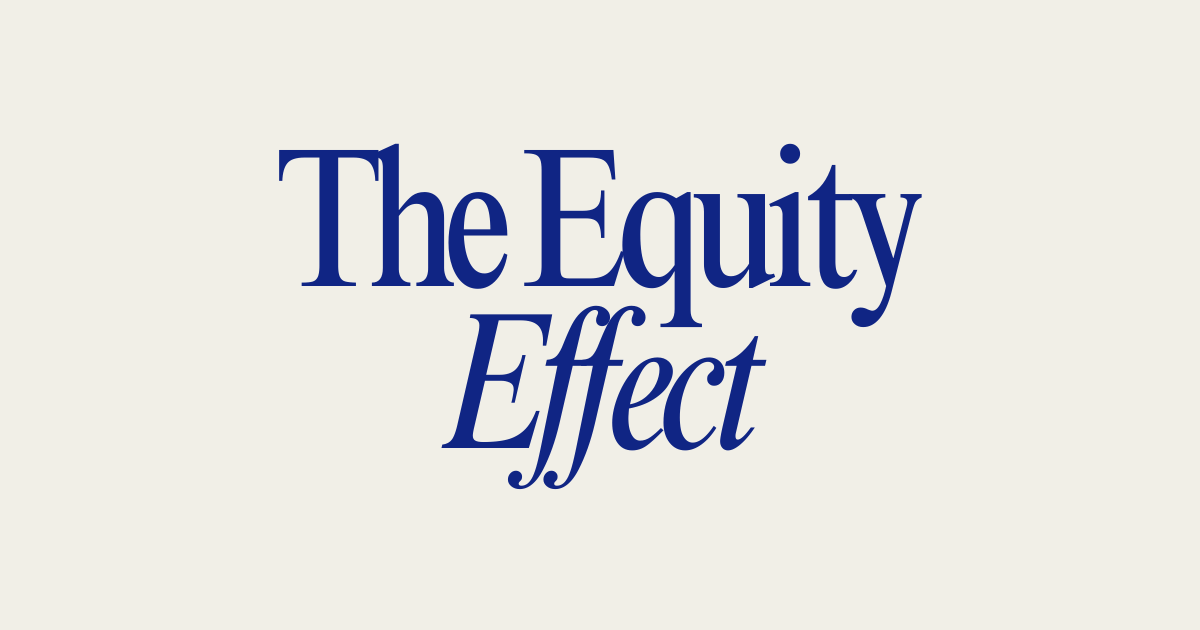- The Equity Effect
- Posts
- Fortune 500’s VC Playbook: How Giants Like Intel & Google Bet on Startups
Fortune 500’s VC Playbook: How Giants Like Intel & Google Bet on Startups
Why Big Corporations Are Investing in Startups—And What It Means for Innovation
By Saanika Gupta, Shadeh Jaberi, Claire Johnson, Ahria Desai
Welcome to The Equity Effect
We’re thrilled to bring you the first-ever edition of The Equity Effect—your insider’s guide to the dynamic world of venture capital. Our mission is to keep you informed, inspired, and ahead of the curve with the latest trends, groundbreaking deals, and thought-provoking insights shaping the VC landscape.
This week, we’re diving into an intriguing shift in the VC landscape: the rise of corporate venture capital arms within Fortune 500 companies. More than 80% of Fortune 500 companies have stepped into the venture capital ecosystem, establishing their own VC arms to fuel innovation within the company. Corporations are doubling down on startups and emerging technologies. They are not only investing in the future of other companies, but are also rejuvenating their own innovation pipelines, infusing new technologies and fresh ideas into their core operations.
In this issue, we’ll explore:
Why are Tech Giants like Google and Microsoft investing in Startups?
Spotlight: Industry News & Firm Focus
Blue Bottle Coffee and how Google Ventures Found Them
The intersection of big business and startups is redefining innovation—let’s unpack the trends driving this evolution.
Table of Contents
Podcast of the week 🎙️
This podcast episode explores Intel Capital’s approach to corporate venture capital, covering strategy, investment focus, and industry insights.
Why are Tech Giants like Google and Microsoft investing in Startups?
Some of the most iconic tech companies, like Microsoft and Google, are living proof of the transformative impact of venture capital. These giants understand the immense value of the asset class, which is why they’ve built powerful, well-funded corporate venture arms like Microsoft Ventures and Google Ventures—the latter being one of the most prolific investors in Silicon Valley today.
But the impact of corporate venture capital (CVC) goes far beyond funding. These ventures are a two-way street: CVCs gain invaluable insights by observing how startups use emerging technologies and bold business models to tap into markets that often fly under the radar of large corporations. For startups, it’s an opportunity to leverage the scale, expertise, and resources of a global powerhouse.
By fostering these relationships, CVCs are creating an ecosystem where creativity meets scalability, ensuring that both startups and corporations remain ahead of the curve. This partnership is where innovation truly thrives—and that’s a trend worth keeping an eye on.
Disney Accelerator: Supports startups developing technologies that enhance the entertainment and media experience.
L’Oréal BOLD (Business Opportunities for L’Oréal Development): Focuses on investing in early-stage startups in beauty tech, personalized beauty, sustainability, and digital transformation to enhance the future of the beauty industry.
BMW i Ventures: Focuses on mobility, energy, and digitalization solutions to shape the future of transportation.
Mastercard Start Path: Partners with fintech startups to develop groundbreaking solutions in payments and commerce.
Spotlight: Industry News & Firm Focus
The expansion into venture capital has allowed large corporations to become more innovative, efficient, and adaptable. Recently, Intel has announced that they plan on spinning off their venture capital sector into its own company called Intel Capital so that they can become more efficient in their operations (Reuters). Although it started in 1991, Intel Capital has raised over $5 billion in assets and invests in various aspects of the tech ecosystem (Reuters). When it started, Intel Capital was unique in its identity as a venture arm of a larger corporation; however, since then, many other corporations have followed, including Google, Microsoft, Salesforce, Unilever, and more (CNBC).
“Intel Capital has raised $5 billion in assets and invests in various aspect of the tech ecosystem”
Company Spotlight ✨☕

Source: the Harvard Crimson, 2018
Blue Bottle Coffee secures $25.75M Series B funding led by Google Ventures—here's why it matters.
In 2014, Google Ventures invested in Blue Bottle Coffee, a high-end specialty coffee roaster known for its meticulous brewing methods and direct-to-consumer model. The Series B investment, part of a $25.75 million funding round, helped Blue Bottle expand its retail presence, scale its subscription service, and refine its digital strategy (CRUNCHBASE). Google Venture’s backing wasn’t just about capital- it was a strategic bet on the premium coffee movement and the potential for tech-driven consumer brands. The funding fueled Blue Bottle’s global growth, ultimately leading to its acquisition by Nestlé in 2017 for a majority stake valued around $500 million. The deal highlighted how venture capital can accelerate artisanal brands and can accelerate artisanal brands, transforming niche markets into mainstream success (Tracxn).
Recent IPOs to Watch
Klarna - is looking to IPO later this year - Visa Ventures
Metsera Inc also filed to IPO in Jan 2025 - backed by Google Ventures
Job + Events Board
That’s a wrap for this week’s edition of The Equity Effect. As Fortune 500 companies double down on venture capital, the line between startups and corporate giants continues to blur—fueling innovation on both sides.
If you enjoyed this issue, share it with a friend or colleague who follows the VC space. Got thoughts, insights, or a deal we should cover? Message us—we’d love to hear from you.
See you next time,
The Equity Effect
Reach us at: [email protected]


